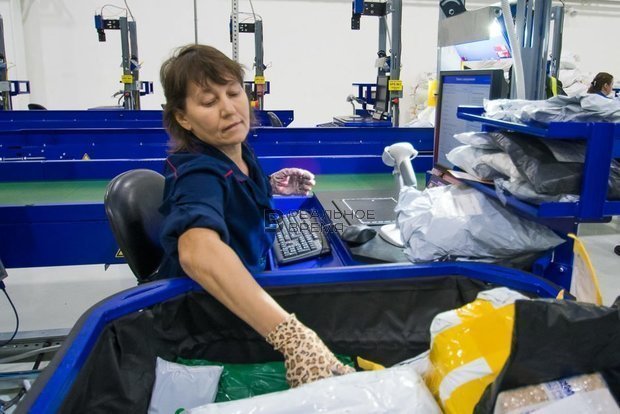‘They deliver goods through Turkey, Dubai, Kazakhstan — demand has increased five-fold after sanctions were imposed’
Services of buyers offering to deliver goods of the brands that halted businesses in Russia are gaining popularity in Kazan
Over the past six months, many popular brands have left Russia over the past six months. The stores closed, and those who wanted to buy clothes or shoes of popular foreign brands have begun to look for an alternative. In these conditions, the activity of buyers — specialists who buy fashionable things abroad and deliver them to the client for a commission has flourished. The correspondent of Realnoe Vremya found out which goods are in demand among Kazan residents and from which countries most parcels come.
“Mostly customers from Moscow and Kazan find out the price and disappear”
In the last six months, buyers have become noticeably more active in Kazan. Since after the events of February, foreign brands left our country one by one, and as a result of sanctions, some luxury goods stopped being imported to Russia, the demand for the services of these specialists has increased several times. Suppliers of goods are mainly located in Dubai, Turkey and Kazakhstan.
“Now the situation is such that it is difficult to bring a lot of things from Europe. All goods are transported through Turkey, Dubai, Kazakhstan. I assume that with the introduction of sanctions, the demand has increased five times! The peak of appeals occurred in April, May, but even now there is a high demand — the same as in March," Kazan bayer Albert Safin told Realnoe Vremya.
Sometimes buyers join teams. Responsibilities are distributed depending on the location of each. If the specialist is in Russia, they take over communication with customers and the delivery of goods “from hand to hand” when the customer requires it.
“There are four people working in our team. One — in one city, three — in others. I'm in Kazan, and my task is to take orders, then I distribute them. My colleagues are in Istanbul and Ankara. I give a task, for example, to find some product. People find the product, find out the price. If the client likes everything, we send it. Colleagues search, tell what price will be — without delivery, with delivery. People decide whether to buy or not," Albert described the scheme of work.
The work is unstable, employment varies depending on the number of orders, the interlocutor of the publication admitted. Besides, it often happens that potential customers refuse to buy if the price does not suit them. If there are few applications, the work takes Albert 2-3 hours a day. The salary is also unstable, depending on the orders and their cost, the seller noted:
“The most difficult thing is to find suppliers and customers. It happens that people don't like the products we find," Albert shared. “It's very difficult to find customers who will order. Most our customers are from Moscow. There are few customers from Kazan — they find out the price and disappear. Therefore, the profit is being not very big at the moment.
However, buyers also felt the negative impact of anti-Russian sanctions. Although there are a lot of customers, there are logistical difficulties and problems with the delivery of goods from abroad, which, of course, affects the cost of the parcel.
“We have to turn to intermediaries to buy goods from foreign sites. To convert rubles into a foreign currency, we also have to make several conversions, respectively, they have to pay a commission each time. Delivery times have increased, especially during the sales season — since all Russia buys goods abroad in those stores that have stopped their operation," said another Kazan buyer Alfiya Zakirova, who has been working in this field for about 5 years.

“People mostly order parts in bulk”
Most of the goods are imported from Dubai and Turkey. By the first direction — mostly components for cars, by the second — textiles and shoes. But there are a lot of products of other categories as well. People order everything from appliances to sweets.
“Spare parts are mostly ordered in bulk, and if in small batches, it's mostly textiles, maybe some kind of shoes," Safin noted. “Someone asks to bring Turkish sweets, someone — crocs. As for sweets — the situation is more complicated. It is necessary to have a permit, it is still a food product.
Cooperation with the supplier also depends on the product category. If we are talking about easily accessible things, you can buy at the usual wholesale market. If we talk about more serious equipment, buyers have to cooperate with companies.
“But now, of course, Turkey is also not very stable with the exchange rate. Even in spare parts. Prices are such that people refuse to buy. From Turkey — they refuse, but from Dubai -they agree.
Nevertheless, the bulk of the demand is mass market. Products from IKEA, Zara, H&M, in a word, popular brands that Kazan residents lack the most. Luxury items are more often ordered before the New Year.

Our customers are not always end customers
The commission of buyers depends on the volume of work and delivery conditions. The product category does not affect the total costs of the client in any way. Parcels are delivered faster by air, but it also costs more. For urgency and day-to-day delivery, the price for the service also increases. According to the expert, for one dress from Zara for 2 thousand rubles — the margin will be 100%.
“It all depends on the volume. This is from 10% to 100%. If someone orders one thing, the margin will be large, because these are still services — to find, to send. This is also work. It is a team working here, not one person. If the volumes are large, then, of course, it turns out less in percentage," Albert Safin noted.
According to another buyer, Andrey Sokolov, it is much more profitable to order foreign goods through resellers:
“The margin of foreign goods that have already been delivered to Russia and that people can get from hand to hand on a same day basis can reach 200-500%. On Wildberries, in my opinion, they can generally drive up 10 times," he noted. “Accordingly, services for the purchase and delivery from abroad are cheaper than ready-made products in Russia. As one of the buyers has recently told me, sometimes it turns out that the goods (with sufficient quantity), taking into account delivery and services, are cheaper per unit than even before the companies left the market and before the sanctions were imposed.
Summing up, Safin spoke about the forecasts of further development of the field:
“At the moment, this business is being on the rise. People are even interested in building materials, ceramics. After February, they were just interested in ceramics, because all the building materials were gone. The business, I think, will be unstable. Although it all depends on how many and what kind of customers you will find, whether there will be regular orders. Our customers are not always end customers, by the way. Sometimes shops, sometimes some wholesale organisations.”
Kazan residents learned about the appearance of such services several years ago. However, the service has become widespread only this spring and summer.